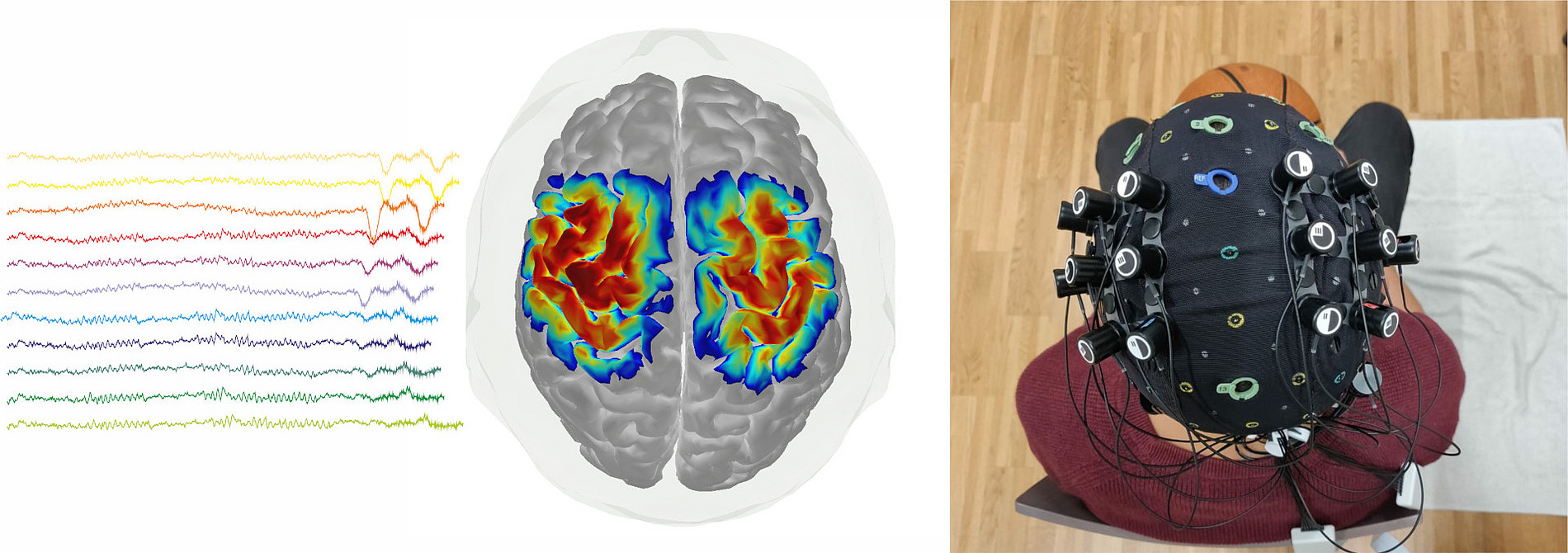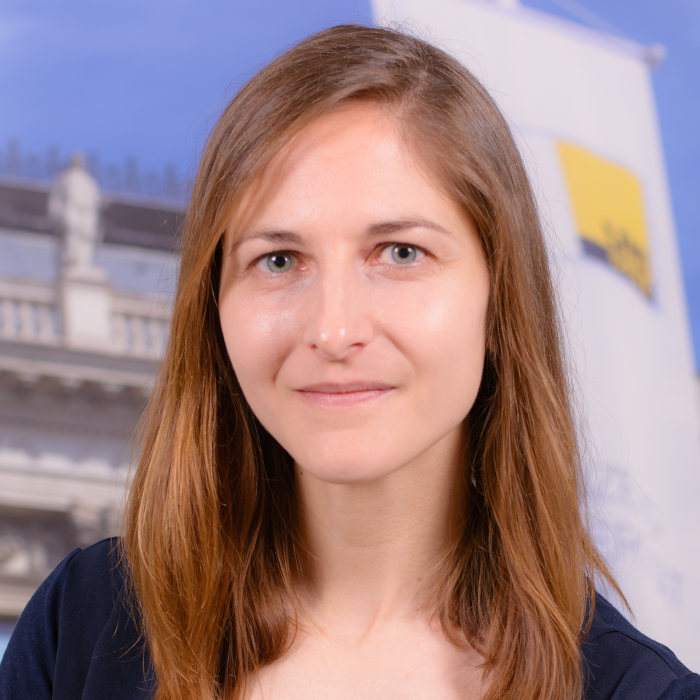Motor Processes and Sensory Perception
One focus in Graz is on research into the neuronal correlates of movement regulation. In this context, not only the execution of movement plays a role, but also the mental imagination of movement. Movement imagination activates similar neuronal networks as movement execution and is used to promote brain plasticity and motor learning in various areas such as sports, motor rehabilitation and brain-computer interface (BCI) research. Mathematical modeling of human movement with reference to mechanical, physiological and neurological measures is another focus of the research field of movement regulation.
Another central research topic is sensory perception, especially visual and auditory perception. The visual system is our primary source of information about the outside world. The sense of sight is the best developed and most widely understood of all the senses. In the field of sensory perception, we investigate, among other things, how subjective experience arises from visual input and how this is represented in the brain.
Furthermore, the neural basis of vocal and pectoral motor control is also investigated in non-human models (fish, reptiles). Fish are particularly well suited for this because, as basal vertebrates, they have less complex neuronal networks, which nevertheless allow direct conclusions to be drawn about the organization of human neuronal networks. Insects are being used to investigate the basics of processing visual information, which allows insects to avoid impending collisions or to see in the dark. The transfer of these abilities to increase the safety of drone flights or to reduce X-ray radiation in breast cancer screening is being pursued in a bionic approach.
Current funded projects
- High-resolution imaging of the human claustrum. 2024-2028. Funded by Fonds zur Förderung der wissenschaftlichen Forschung (FWF). PI: Natalia Zaretskaya.
- Left or right? - Neurolinguistic complexity in political discourse. 2023-2027. Funded by the University of Graz (profile-building area COLIBRI). PIs: Silvia Kober & Edgar Onea.
- Crossing borders: Examining individual differences in the melodic perception of dialects and languages - A journey from musicology and (socio-)linguistics to neurophysiology. 2022-2026. Funded by ÖAW(Austrian Academy of Sciences). PI: Markus Christiner.
- Complexity in team sports: Combining neural network analysis and brain-computer interface technology to improve tactical sports performance. (2021-2025). Funded by German Federal Ministry. PIs: Silvia Kober & Markus Tilp.
- Study of transitions in binocular rivalry. 2020-2025. Funded by the Austrian Science Fund (FWF). PI: Natalia Zaretskaya.

